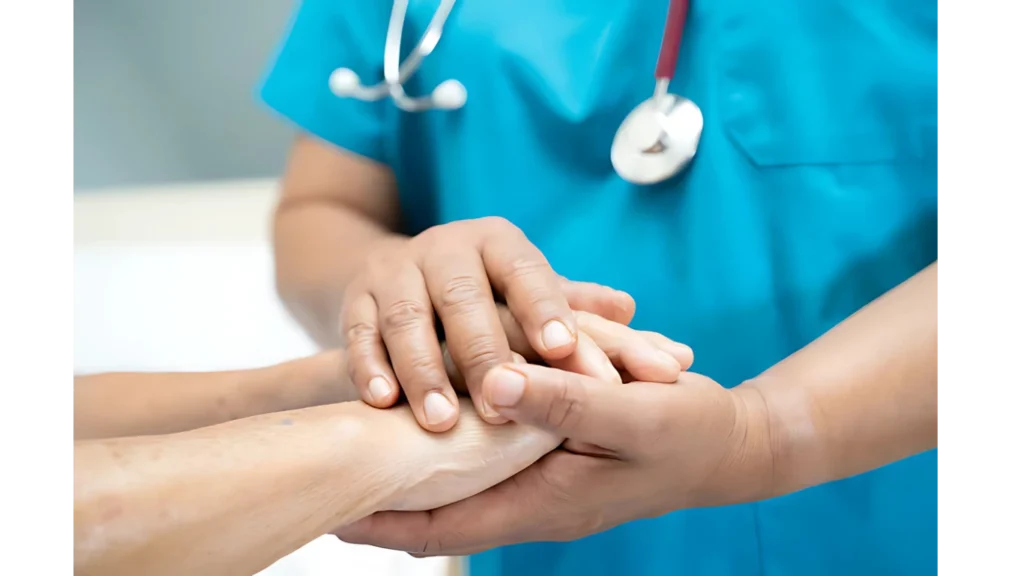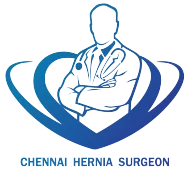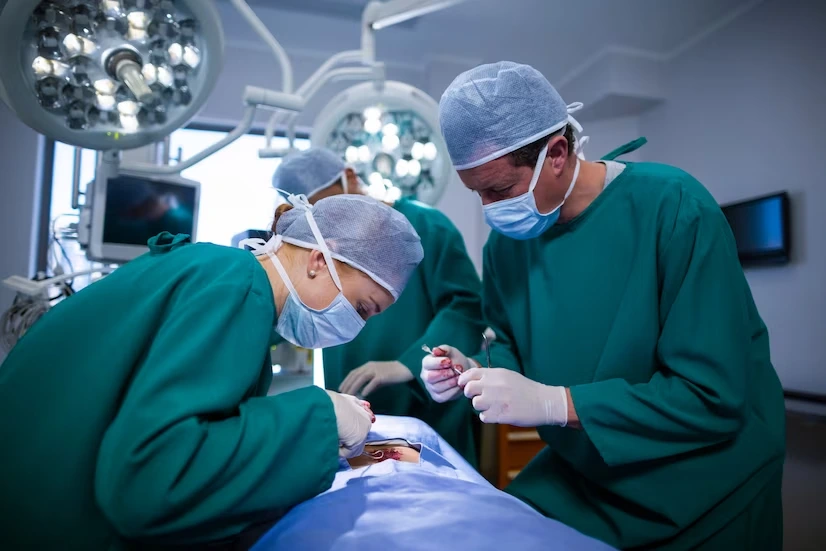Internal abdominal hernias are rare hernias. Yet when they occur, they are untraceable until complication.
A complicated hernia can leave an array of symptoms. Based on the symptoms and further diagnosis, appropriate hernia treatment is recommended.
In this article, we’ll see the possible symptoms of an internal abdominal hernia and the treatments available to treat it.
Table of Contents
ToggleSymptoms of Internal Abdominal Hernia
The symptoms of an internal abdominal hernia include:
- Abdominal Pain
- Nausea
- Vomiting
- Bloating
- Abdominal Distension
- Changes in Bowel Movements
Abdominal Pain
Abdominal pain is a primary symptom of an internal hernia getting complicated.
The position of an internal abdominal hernia determines the area of occurrence of pain in the abdominal region. A foramen of Winslow hernia causes pain in the upper right abdominal area, whereas a transmesenteric hernia causes pain in the upper or central abdomen.
The degree of severity of the abdominal pain also depends upon the kind of internal abdominal hernia. A transomental hernia causes an intermittent and dull pain, and the abdominal pain caused by an intersigmoid hernia feels like a cramp.
Nausea
Nausea occurs when the internal abdominal hernia gets complicated. Internal hernia complication includes obstruction, strangulation, or incarceration of the intestine or other bowel parts.
When the intestine or other bowel parts get complicated you may feel sick to the stomach and feel like throwing up whatever you eat or drink.
Also, complicated internal abdominal hernias can cause a feeling of satiety or fullness of the stomach, preventing taking in adequate nutrition.
Vomiting
Vomiting naturally follows nausea most of the time. A complicated internal abdominal hernia can hinder the digestion process. Due to indigestion, vomiting may also ensue.
If vomiting arises because of indigestion, it is only best to repair the hernia as soon as possible to stop the worsening of the situation and one’s health.
Bloating
Bloating refers to the accumulation of gas in the stomach and intestines. Improper digestion of food and obstructed functions of the bowels can lead to the build-up of gas.
You may feel your abdomen to be often tight and highly discomforting due to bloating. Bloating hinders healthy bodily function. So, it is better to address the internal hernia that is responsible for bloating as soon as possible.
Abdominal Distension
Bloating and swelling of the abdomen due to internal hernias cause abdominal distension.
Abdominal distension refers to the abnormal swelling of the abdomen outwardly. Bloating is the main reason for the occurrence of abdominal distension. Swelling of the abdominal content may also cause it at times.
Changes in Bowel Movements
Internal abdominal hernias disrupt bowel movements in many ways. Constipation and diarrhea are two chief disruptions brought about by internal abdominal hernias affecting bowel movements.
With improper bowel movements serious health ailments may arise. So, diagnose and repair an internal abdominal hernia sooner.
Symptoms of Intestinal Obstruction
When the intestine gets stuck in the hernia sac, it is called an obstructed hernia. An obstructed intestine is dangerous to health and should be repaired quickly.
Internal abdominal hernias cause intestinal obstruction more often. Some of the symptoms of intestinal obstruction include:
- Severe pain in the area of obstruction
- Cramping of the abdomen
- Nausea
- Vomiting
- Satiety
- Swelling of the abdomen
- Constipation
- Bloating
If you encounter any of these symptoms, it is an indication to visit a hernia specialist immediately and repair the hernia.
Signs of Hernia Strangulation
When the blood supply to the contents in the hernia sac gets cut off it is called strangulation of the hernia. A strangulated hernia is fatal as it can turn into a gangrene rapidly.
Signs of a hernia getting strangulated include:
- Acute pain in the hernia region
- Reddening or darkening of the abdomen site of the hernia
- Fever
- Nausea
- Vomiting
- Constipation
- Bloating
Internal abdominal hernias get strangulated easily. Therefore, repairing an internal abdominal hernia is a priority.
Is Internal Hernia Curable?
Yes, healing an internal hernia is possible. Modern surgical procedures like laparoscopy and robotic assistance are widely employed to repair an internal abdominal hernia.
Internal abdominal hernias occur rarely and their diagnosis is also difficult. Barium swallow, CT (computed tomography) scan, and other imaging tests are usually employed to diagnose an internal abdominal hernia.
You can manage an internal abdominal hernia without surgery if it does not cause any pain. But to prevent adverse scenarios it is better to employ an elective hernia repair.
Treatment for Internal Hernia
The best treatment for internal abdominal hernias is surgery. The latest surgical methods make hernia surgery a piece of cake. You can leave the hospital on the same day of your surgery and also experience little to no post-surgery complications. The recovery period is also shorter for minimally invasive surgical procedures.
Open surgery is employed only when the hernia repair requires a larger incision. Other than that, laparoscopy and robotic surgeries are used to repair internal hernias often.
Conclusion
Internal abdominal hernias are complications that can be treated effectively if the symptoms are properly analyzed and used for diagnosis.
Mark the symptoms that you experience in your abdominal region and report them to a hernia repair specialist to have an accurate treatment of the ailment. Also, ensure that the hernia surgeon you visit has sound knowledge and surgical experience with internal abdominal hernias.
To know more about internal abdominal contents and its symptoms contact a hernia specialist.
Dr. K. Amilthan MBBS., MS., FMAS., FALS.
Heal Your Hernia Now:
- 20+ Years of Experience
- 1,000+ Surgeries
Your Journey to Wellness Begins with us.
FAQ's
If you experience nausea, vomiting, constipation, bloating, or fever accompanied by sharp pain in your abdomen, you may have to visit a hernia specialist. An internal hernia is not visible on the outside but exhibits the same symptoms as an outward hernia.
You will feel a sharp pain in the abdominal region where you are herniated. You will not see any visible bulging, but experience the regular symptoms of an external hernia.
Yes, hernias cause gas. It is due to obstruction of the bowels that leads to indigestion, constipation, and bloating.

Dr. Amilthan
Dr. Amilthan is a renowned laparoscopic hernia surgeon based in Chennai, with over 20 years of experience in general surgery. He completed his MBBS and MS in General Surgery at Kilpauk Medical College and Government Royapettah Hospital in Chennai.
- All Posts
- Hernia Blog

Which Doctor should you consult for Hernia? You can Consult a general surgeon or a hernia specialist for evaluation and...

A hernia occurs when an organ or any other part of your body pushes through the muscle and surrounding tissue...

An inguinal hernia occurs when the organs push through and bulge against the weak muscles of the abdomen. An effective...

